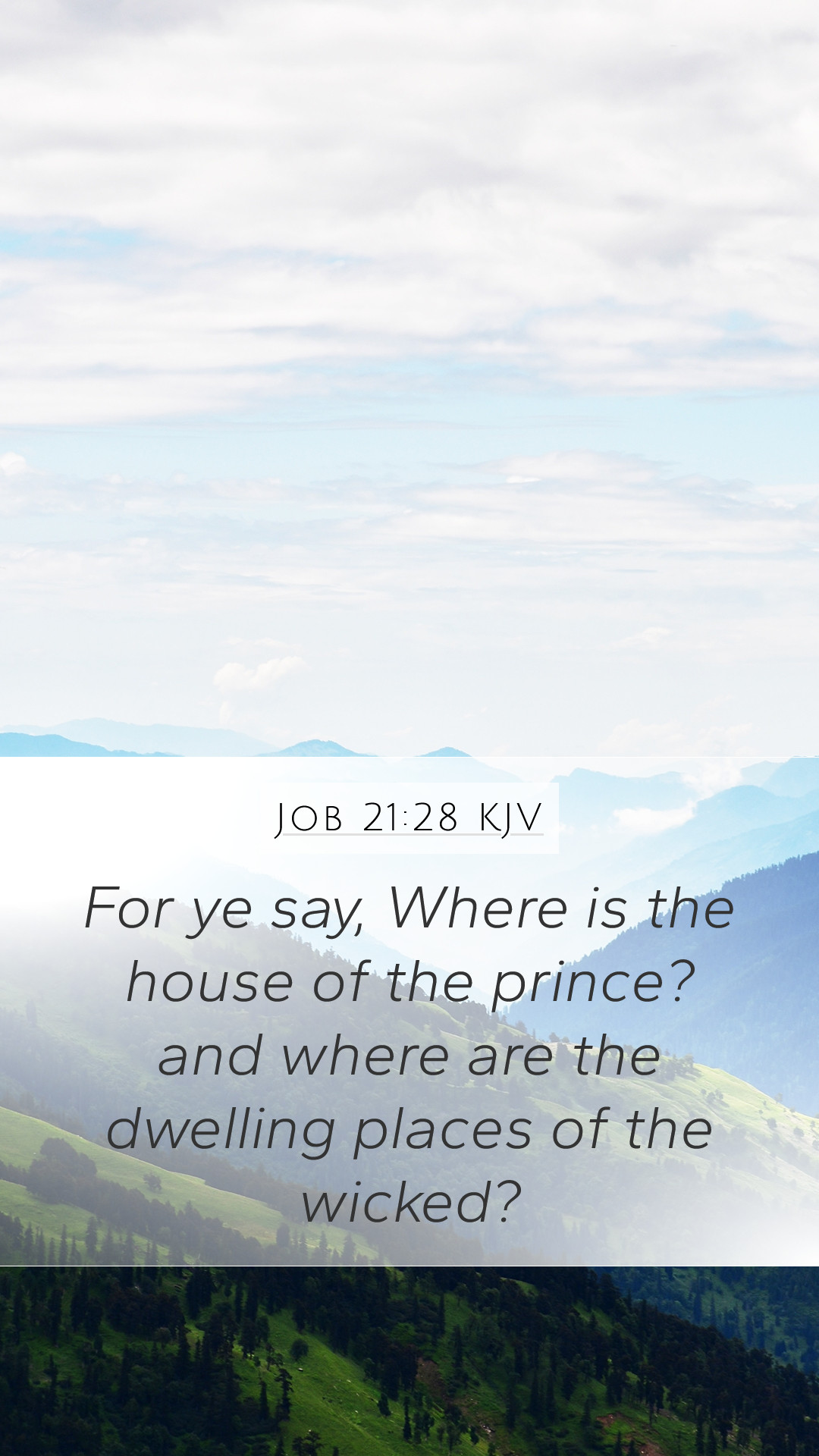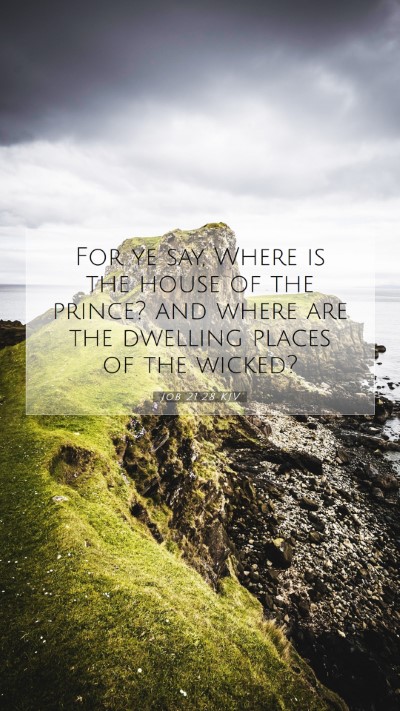Understanding Job 21:28
Job 21:28 reads: "You say, 'Where now is the house of the great, the tent where the wicked lived?'" This verse is part of Job's response to his friends who are attributing his suffering to wickedness. Here's a thorough examination of its meaning and context as captured by renowned Biblical commentators.
Bible Verse Meanings
This verse showcases Job's challenge to the prevailing beliefs of his time about divine justice. The essence of Job’s statement is a rebuke to the simplistic theology of retribution held by his friends, asserting that the prosperity of the wicked does not guarantee their punishment in this life.
Bible Verse Interpretations
According to Matthew Henry, Job's inquiry suggests a reflection on the apparent success of the wicked and the failure of his friends to understand that suffering does not always correlate with sin. Albert Barnes emphasizes that Job is rhetorically questioning the validity of their claims regarding the fate of the wicked. Adam Clarke elaborates by noting that Job is essentially arguing against the injustice that his friends proclaim, demonstrating a deep philosophical and theological understanding of God’s governance.
Contextual Insights
- Job’s Discontent: Job is expressing his frustration over the misconceptions about divine justice.
- Divine Justice vs. Moral Order: There is a stark contrast between human perception of justice and God’s ultimate justice as revealed in scripture.
- Focus on the Temporal: Job implies that the ultimate fate of the wicked may not manifest in earthly life.
Historical Context
The context of this verse is essential for understanding its meaning. Job was a wealthy man who lost everything. His friends assumed that his misfortunes were a direct result of his sins, adhering to the concept of immediate retribution. Job, however, stands as a testament to the reality that innocence can suffer while the wicked may prosper temporarily.
Application of the Verse
In today's context, Job 21:28 encourages believers to reflect on their understanding of justice. It raises vital questions about the nature of suffering and prosperity, encouraging individuals to look beyond surface appearances in their relationship with God and others.
Bible Study Insights
- Understanding that our circumstances may not reflect our character or righteousness.
- The importance of questioning popular belief systems and norms that do not align with biblical truths.
- Encouragement to seek a deeper relationship with God beyond mere theological formulae.
Related Bible Verses
- Psalm 37:1-2: "Do not fret because of those who are evil or be envious of those who do wrong; for like the grass they will soon wither, like green plants they will soon die away."
- Ecclesiastes 7:15: "In this meaningless life of mine I have seen both of these: the righteous perishing in their righteousness, and the wicked living long in their wickedness."
- Malachi 3:15: "And now we call the arrogant blessed. Certainly evildoers prosper, and even when they put God to the test, they get away with it."
Conclusion
Job 21:28 serves as a poignant reminder of the complexities of divine justice, encouraging believers to seek a more profound understanding of God's ways amidst the apparent chaos of life. As seen through the lens of prominent Bible commentaries, this verse not only challenges the notion of immediate retribution but also calls for a deeper inquiry into God's character and promises.


